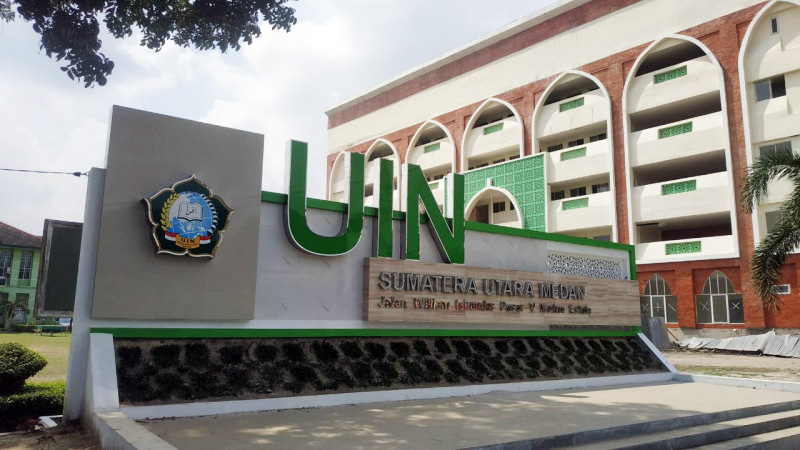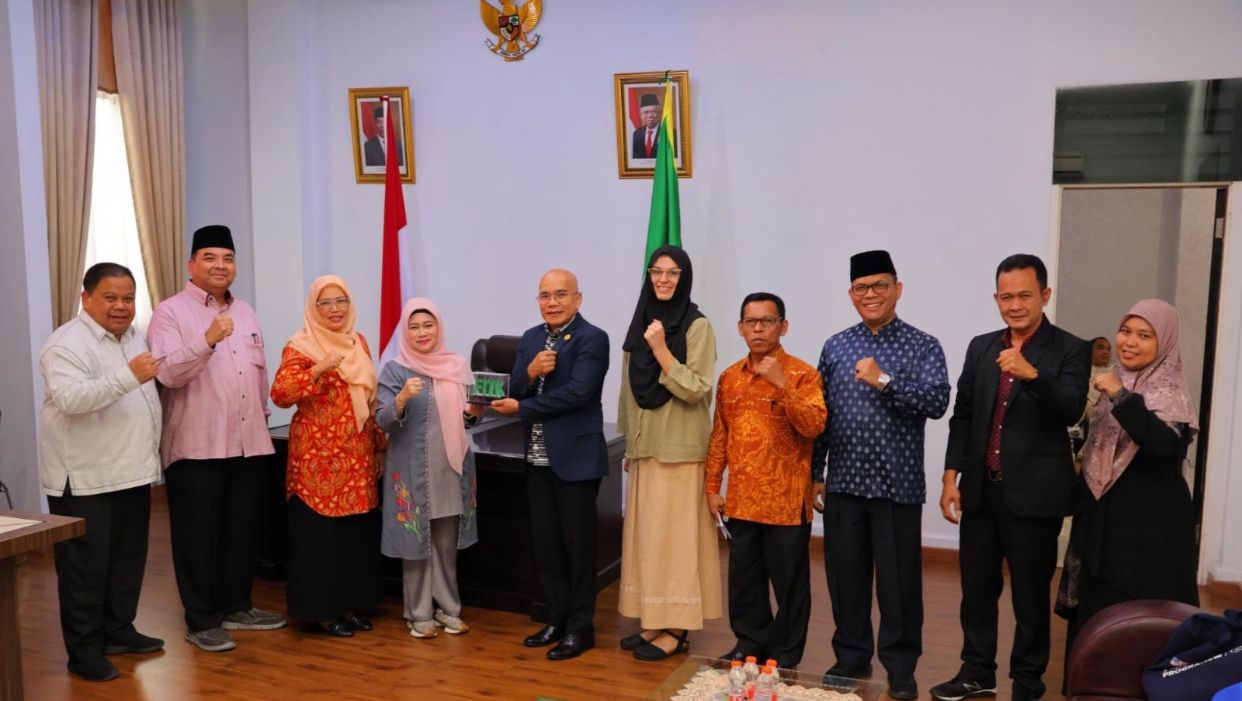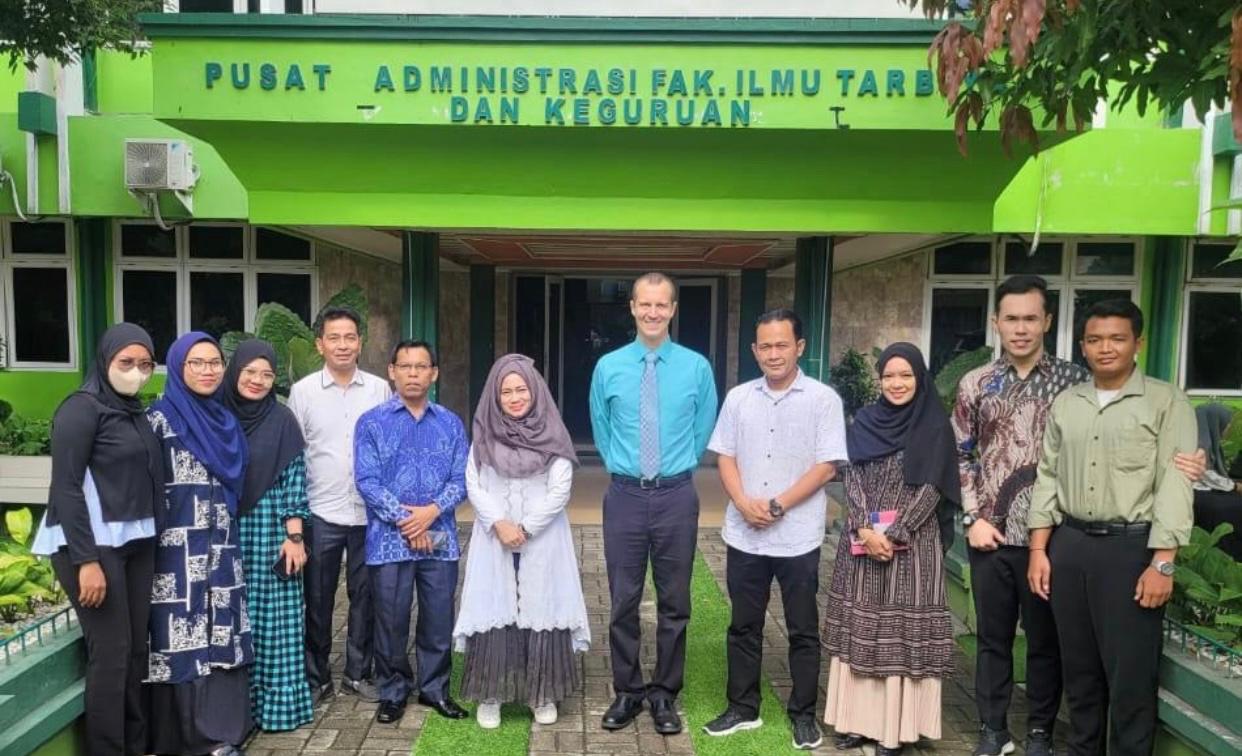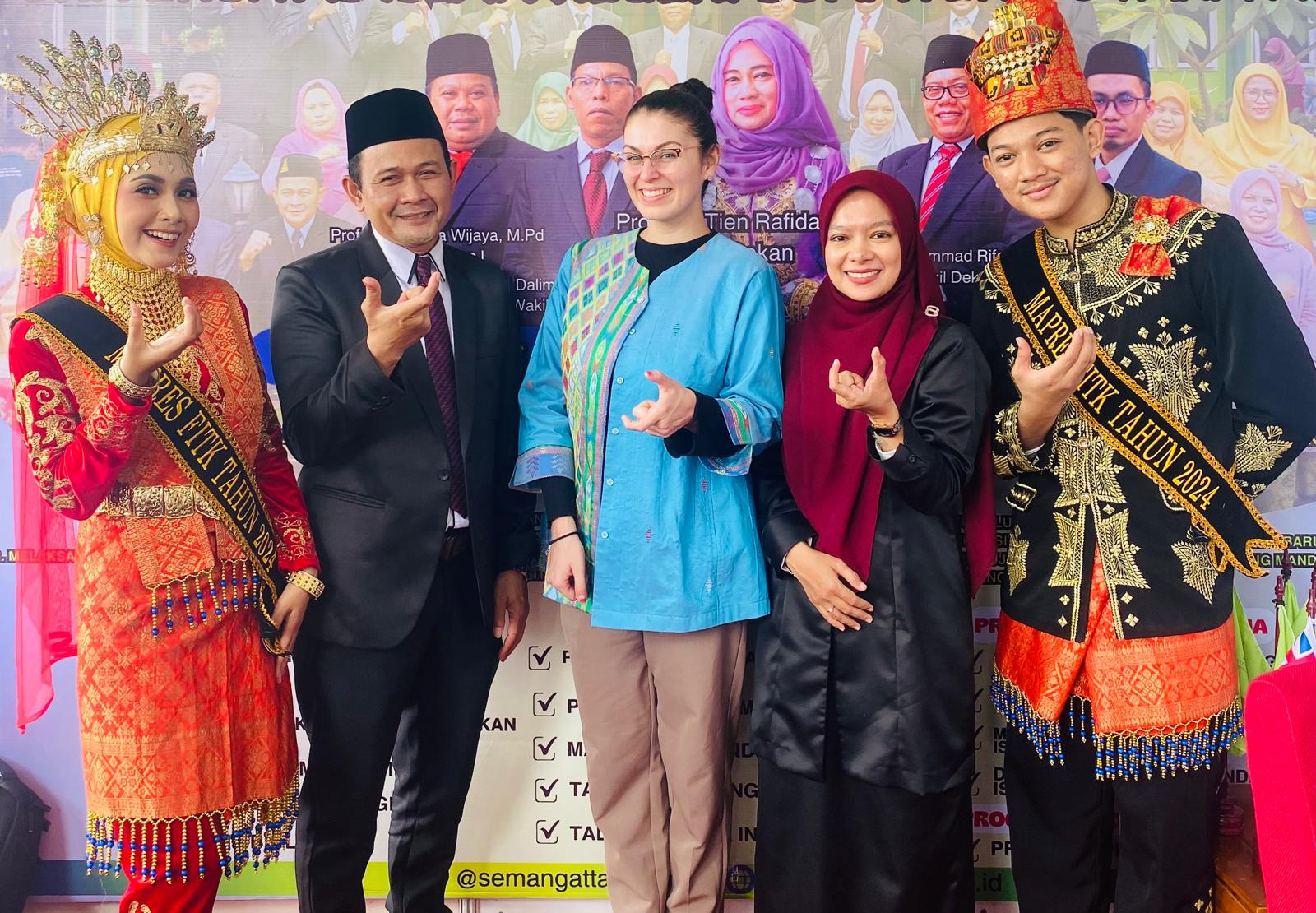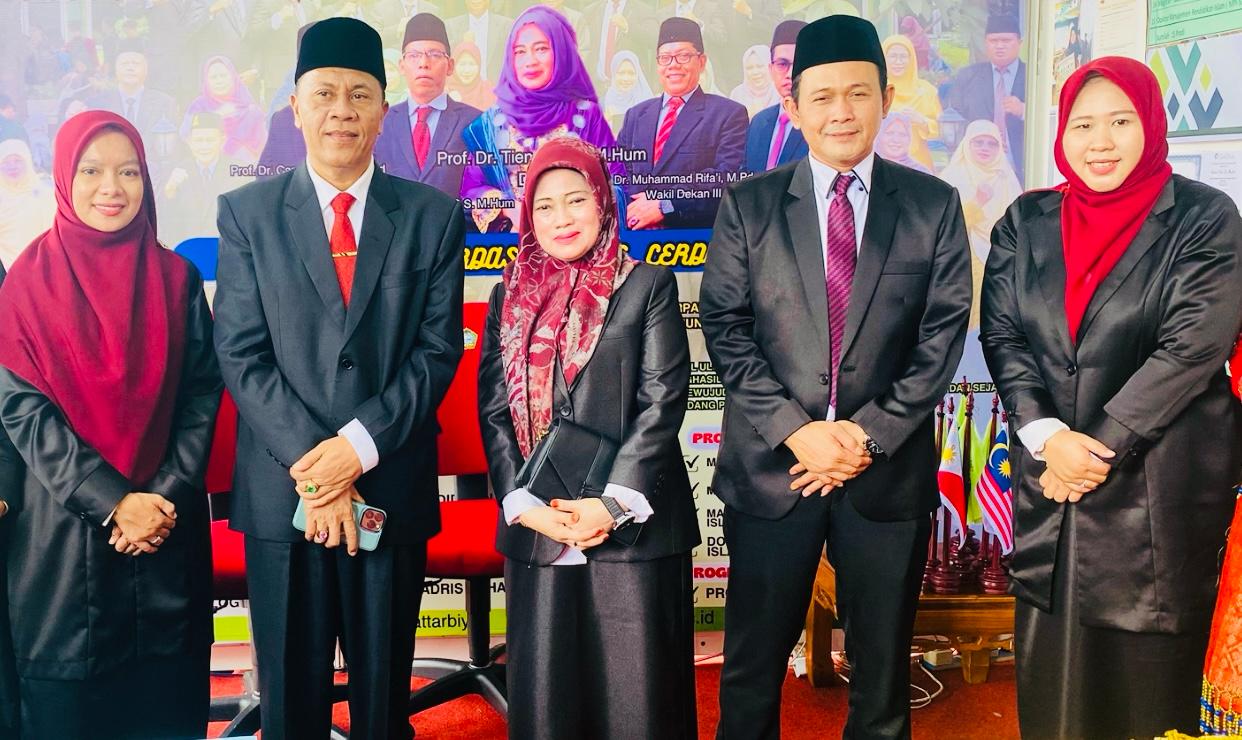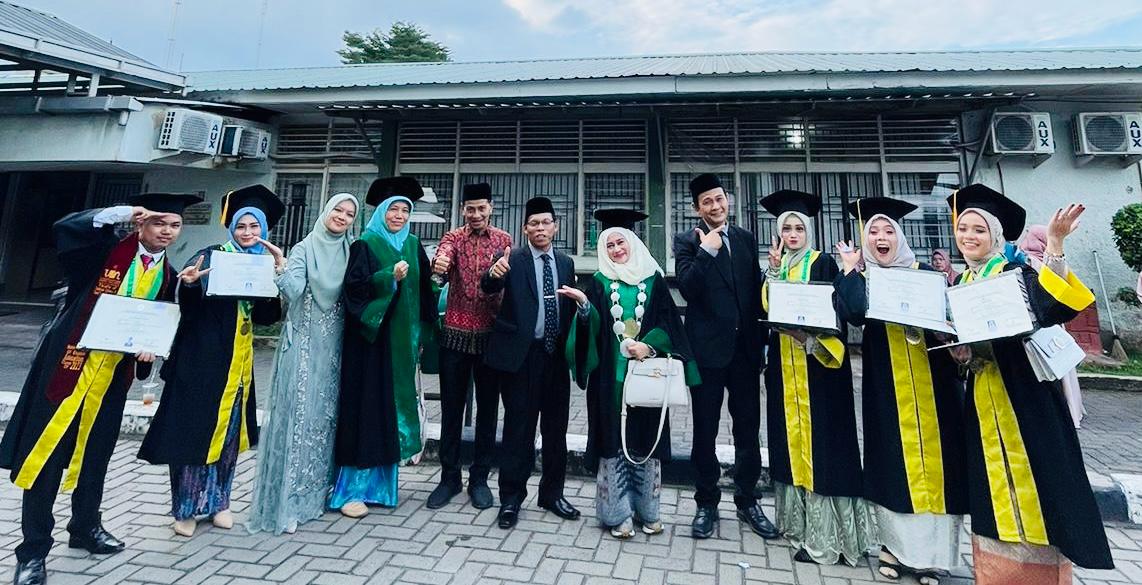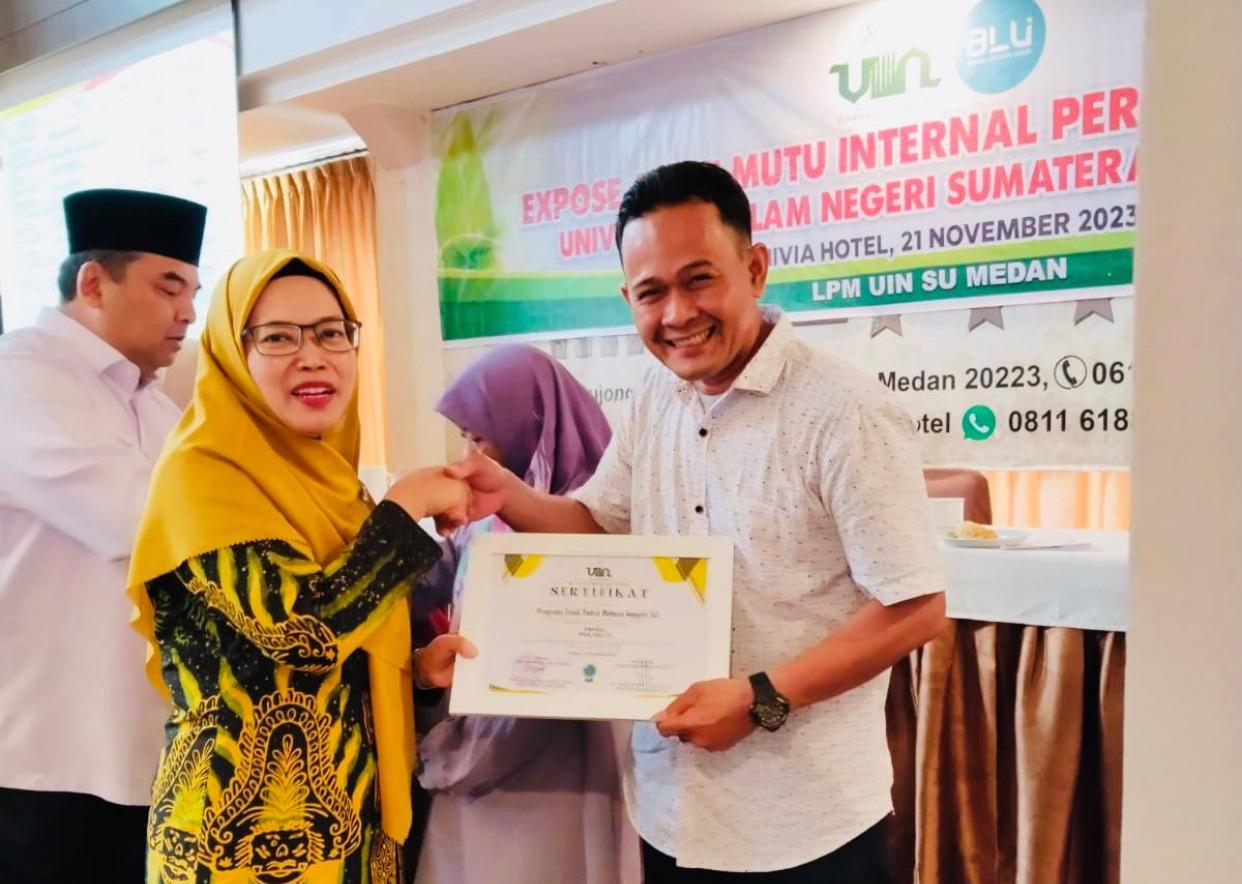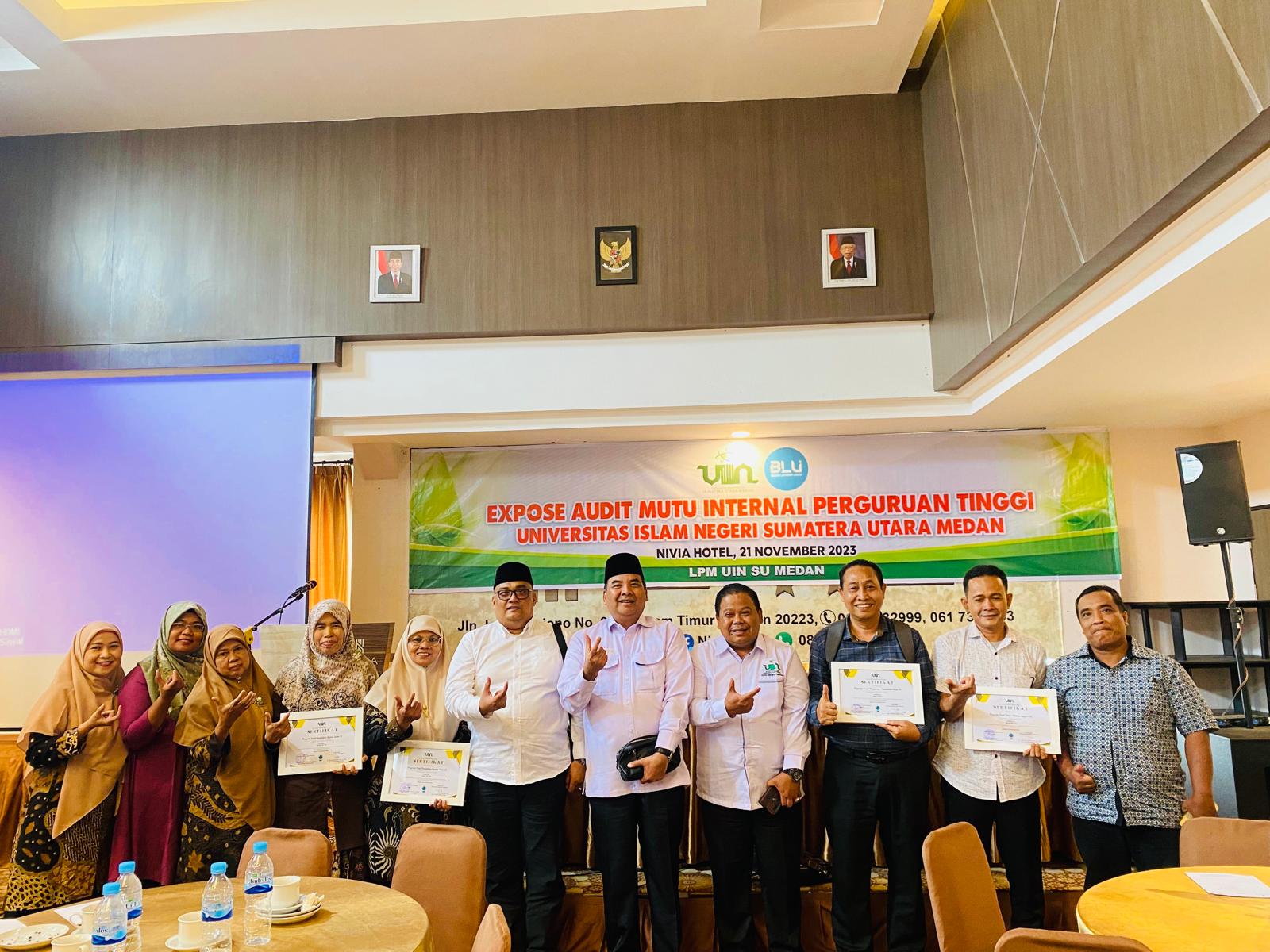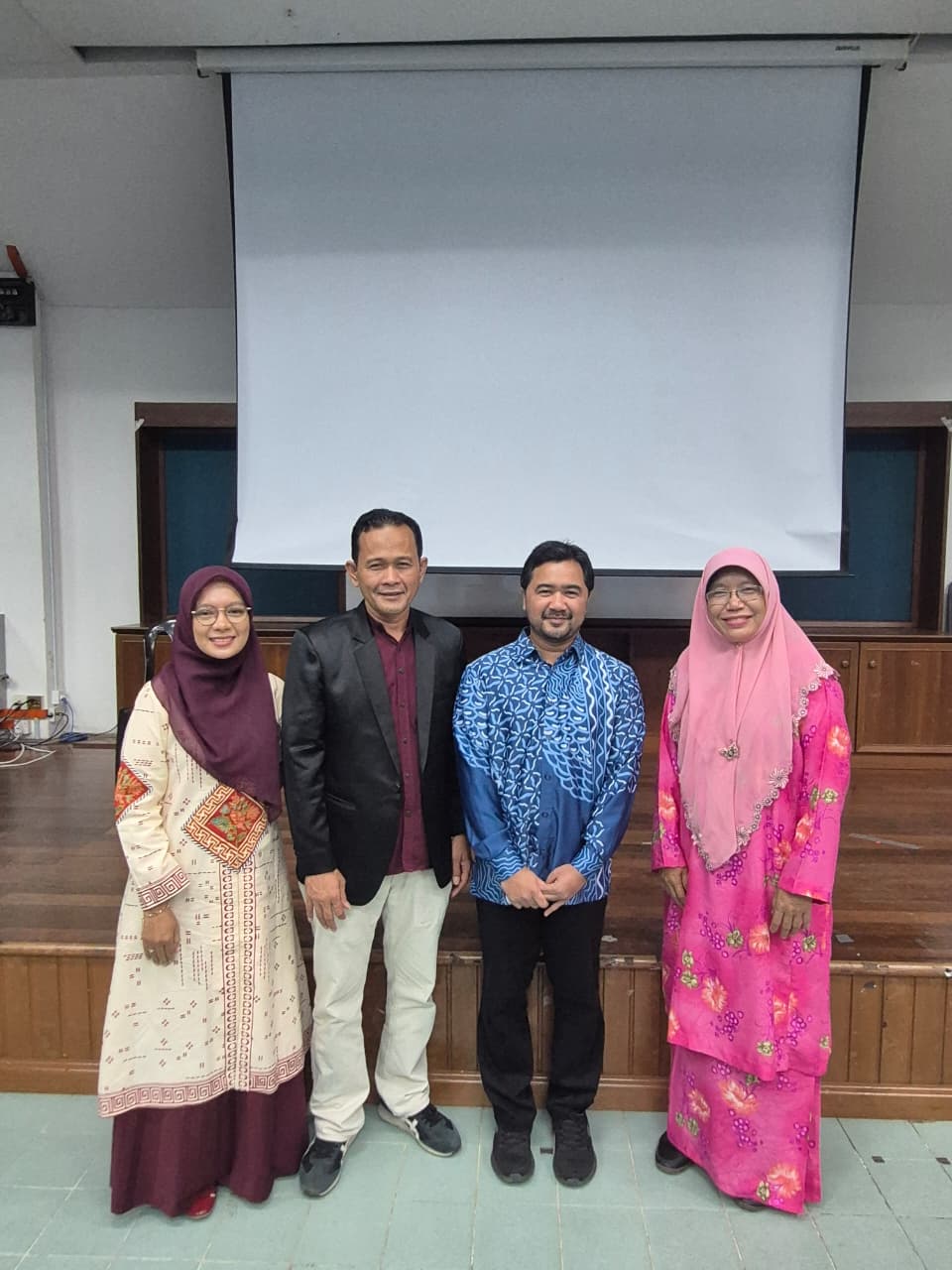
Gombak, Malaysia – July 3, 2025 – As part of an ongoing initiative to strengthen international academic partnerships, two senior lecturers from the Master’s Program in English Education (Magister Tadris Bahasa Inggris), Faculty of Tarbiyah and Teacher Training, Universitas Islam Negeri Sumatera Utara (UINSU), were honored to serve as Visiting Lecturers at the Kulliyah of Education, International Islamic University Malaysia (IIUM), on Thursday, July 3, 2025.
The lecturers, Dr. Sholihatul Hamidah Daulay, M.Hum and Dr. Maslathif Dwi Purnomo, Ph.D, are prominent figures in English language education and linguistic research in Indonesia. Their lectures were part of a collaborative academic exchange between the two institutions and were attended by faculty members, postgraduate students, and researchers from IIUM and beyond.
In her session, Dr. Sholihatul Hamidah Daulay delivered a provocative and insightful lecture titled “Strange and Humorous Acronyms in Indonesian: Linguistic Creativity and Cultural Reflection.” She explored the widespread phenomenon of deliberately humorous and sometimes controversial acronyms found in Indonesian bureaucratic, governmental, and media naming practices.
Among the examples she discussed were acronyms such as SI MONTOK (Sistem Monitoring dan Kontrol), SI-PEPEK (Sistem Pelayanan Program Penanggulangan Kemiskinan dan Jaminan Kesehatan Warga Kurang Mampu di Kabupaten Cirebon), SI-BEDJO (Sistem Informasi Berbasis Digital untuk Jaringan Operasi), and KANG DEDI MEMANG JANTAN (an overly long acronym used for a regional development campaign). While seemingly humorous or even risqué, these acronyms reflect a complex interplay between linguistic inventiveness, institutional branding, and the socio-political context in which they are created.

Dr. Sholihatul Hamidah Daulay delivered an insightful lecture titled “Strange and Humorous Acronyms in Indonesian: Linguistic Creativity and Cultural Reflection.”
Dr. Sholihah emphasized that these acronyms serve not only as language play but also as mirrors of public sentiment, political critique, and shifting cultural norms. Her sociolinguistic analysis opened an engaging discussion on how humor, satire, and abbreviation are uniquely entangled in Indonesia’s public and bureaucratic discourse.
In the following session, Maslathif Dwi Purnomo, Ph.D delivered a lecture entitled “Multimodal Communication in Contemporary Discourse: Theory and Practice.” Drawing on the framework of Multimodal Discourse Analysis (MDA), his presentation focused on how communication today operates through various interconnected modes—verbal, visual, gestural, spatial, and digital.
Dr. Maslathif introduced participants to key theories by Gunther Kress and Sigrid Norris, explaining how meaning is constructed not just through spoken or written words but through layout, gaze, movement, font, and even color. Using real-world examples from education, media, and public communication in Indonesia, he highlighted how multimodality is essential for understanding discourse in the digital era.

Maslathif Dwi Purnomo, Ph.D delivered a lecture entitled “Multimodal Communication in Contemporary Discourse: Theory and Practice.”
His lecture encouraged educators and researchers to consider multimodal literacy as a critical competency in both teaching and discourse analysis, especially in increasingly globalized and media-saturated contexts.
This Visiting Lecturer program marks an important milestone in the deepening relationship between UINSU and IIUM. The event not only provided fresh academic perspectives on linguistics and communication studies but also reinforced the value of Southeast Asian academic collaboration in addressing regionally relevant themes.
Dean of the Kulliyah of Education, Prof. Dr. Suhaila Hussien, welcomed the contribution of both speakers and expressed optimism for continued engagement between the two institutions. “These sessions offered valuable insights and sparked meaningful dialogue among our faculty and students. We look forward to building more bridges in research and teaching with our colleagues from UINSU,” he stated.
The event concluded with an interactive discussion, demonstrating participants’ enthusiasm and the relevance of both topics to current issues in language, education, and communication. The presence of Dr. Sholihah and Dr. Maslathif not only enriched IIUM’s academic environment but also showcased the critical contributions of Indonesian scholars to global conversations on language and society.

